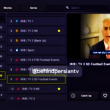The suspect, Mihai Ionut Paunescu, was already arrested by the Romanian authorities in December 2012 but managed to avoid extradition to the United States.
Colombian authorities have arrested Mihai Ionut Paunescu, a Romanian man who was charged more than eight years ago by the United States with involvement in developing the Gozi virus.
Gozi is a Trojan horse that, according to US prosecutors, infected more than a million computers worldwide and allowed criminals to steal tens of millions of dollars from bank accounts between 2005 to 2012.
The countries targeted by the Gozi virus included Finland, Germany, United States, and the United Kingdom. Its victims included corporations including computer networks operated by NASA.
Paunescu introduced a new business model in which he did not use for himself, but rented it out to other cybercriminals for $500 a week to generate revenue, the prosecutor said. A model that was eventually adopted by other cybercriminals.
In late 2012, three men including Paunescu were arrested for their involvement in spreading and developing the malware. However, Paunescu managed to avoid extradition to the United States.
A man from Latvia, who provided the Gozi virus with new functionality, was sentenced to 20 months in prison. In November 2012, Nikita Kuzmin, the author of the virus was arrested by the Latvian authorities. He was extradited to the US in 2015.

Paunescu is also suspected of offering hosting services to cybercriminals. His hosting services spread the Gozi virus and committed other cybercrimes, including the distribution of Zeus and SpyEye malware, carrying out DDoS attacks, and sending mass spam, the indictment said.
The Romanian is said to have rented the servers and IP addresses of legitimate providers and then offered them to cybercriminals.
He was already arrested by the Romanian authorities in December 2012, after which the US requested his extradition. However, the Romanian was never extradited.
On Tthe Colombian authorities announced that Paunescu was arrested at Bogotá airport. The US can now request his extradition.
Did you enjoy reading this article? Like our page on Facebook and follow us on Twitter.









